Join Our Newsletter for Cozy Home Inspiration, Family Fun, and Delicious Recipes Every Week
12 Best Bedroom Plants For Better Sleep
After spending so much time updating my black accent wall, I looked around my bedroom and realized something was still off. It was stylish, but it didn’t feel restful, just kind of cold and stale.
I’d been struggling with poor sleep lately, and everything I read said to make your bedroom more comfy. That’s when I started thinking about bedroom plants. I’d always liked the look of them in magazines, but were they actually helpful? Could they really make a difference beyond just aesthetics?
The internet had conflicting answers; some said plants purify the air, while others called it pseudoscience. But I wasn’t aiming to turn my bedroom into a greenhouse or solve climate change.
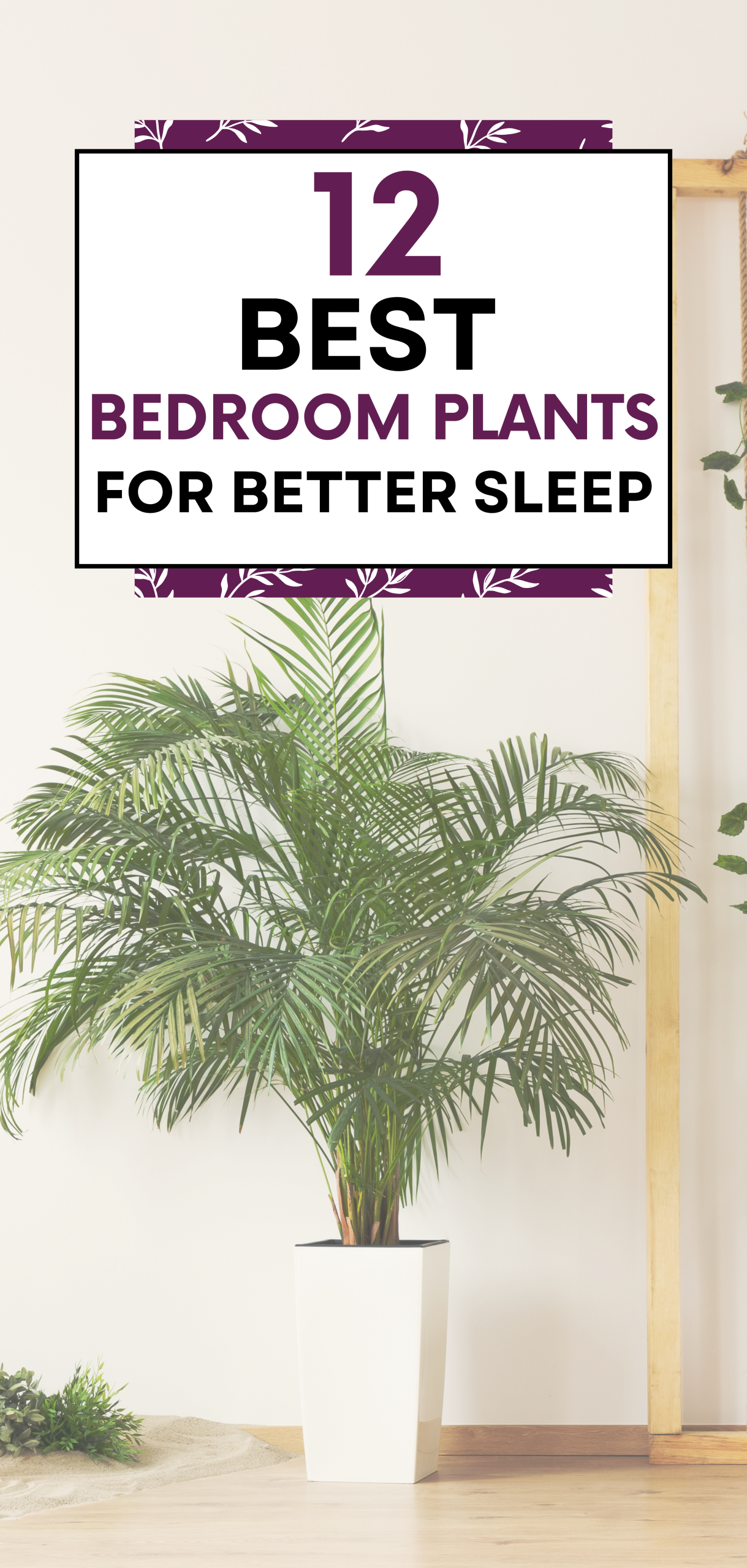
I just wanted to refresh my room with some natural energy. So I chose a few low-maintenance bedroom plants: snake plant, aloe vera, and a peace lily. All are non-toxic to my cat, all are pretty chill about low light, and honestly, they just made the room feel alive. Plus, they looked stunning against the dramatic backdrop of the dark wall.
Within a few days, I noticed the vibe in my room had completely changed. It wasn’t just about breathing better air; it was about feeling more relaxed, grounded, and cozy.
Now, I look forward to winding down surrounded by that soft greenery. If you’ve been thinking your bedroom feels a little flat or cold, especially with darker design elements, adding bedroom plants might be exactly the refresh you need. It worked wonders for my sleep in my bedroom, no NASA study required.
12. Snake Plant (Sansevieria trifasciata)
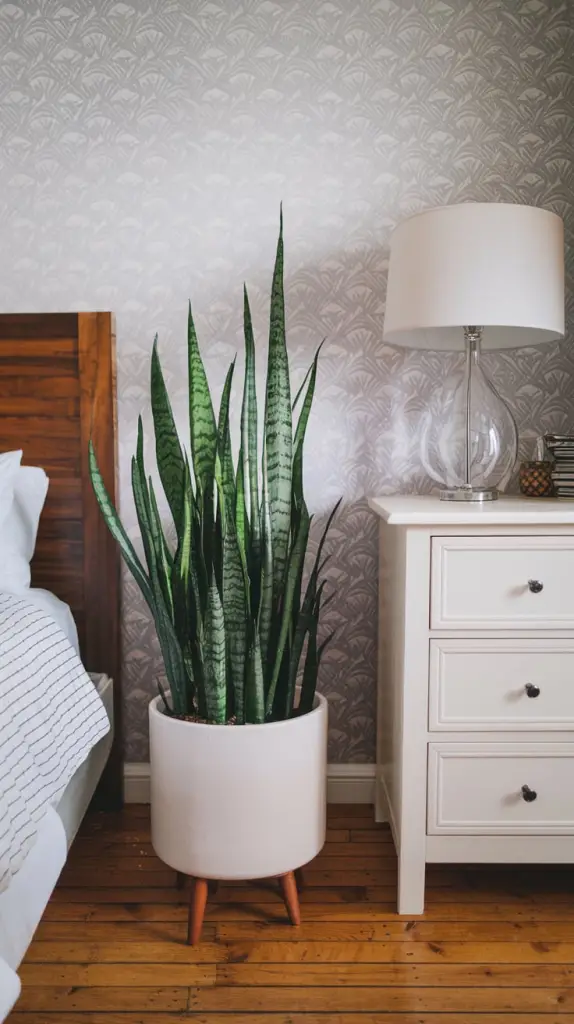
Also known as “Mother-in-Law’s Tongue,” the snake plant is one of the few plants that release oxygen at night, making it ideal for bedrooms.
Sleep Benefits:
- Converts CO₂ into oxygen during the night
- Filters toxins like benzene, formaldehyde, and xylene
- Requires minimal care and thrives in low light
Care Tip: Water sparingly, only when the soil is dry. Avoid overwatering, as it leads to root rot.
11. Lavender (Lavandula angustifolia)
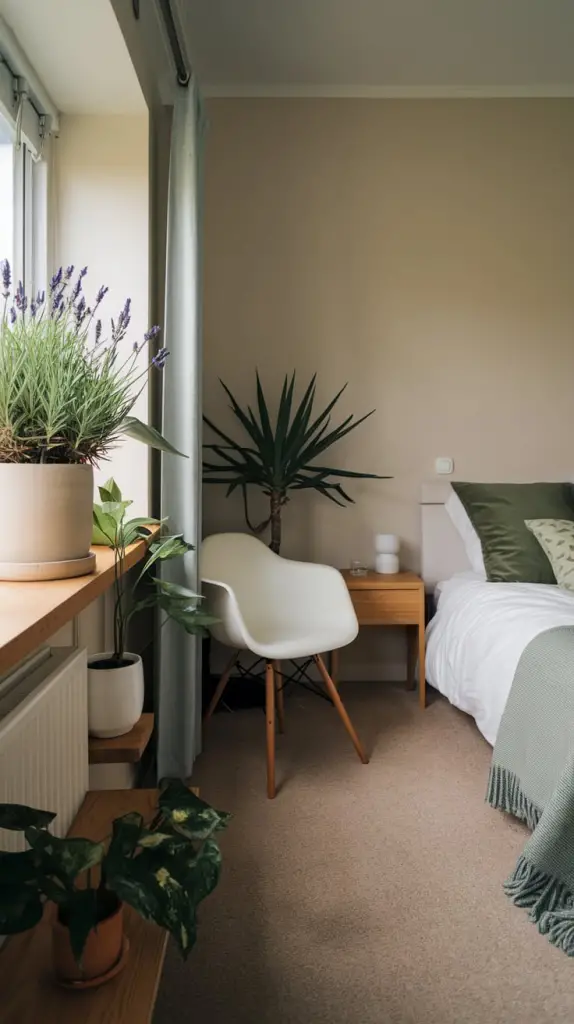
Lavender’s calming fragrance is renowned for reducing anxiety and slowing heart rate, which supports deeper sleep cycles.
Sleep Benefits:
- Natural sedative; aids in insomnia relief
- Reduces stress and lowers cortisol levels
- Emits a pleasant, sleep-inducing scent
Care Tip: Place near a south-facing window for maximum sun exposure. Use well-drained potting mix to prevent mildew.
10. Aloe Vera
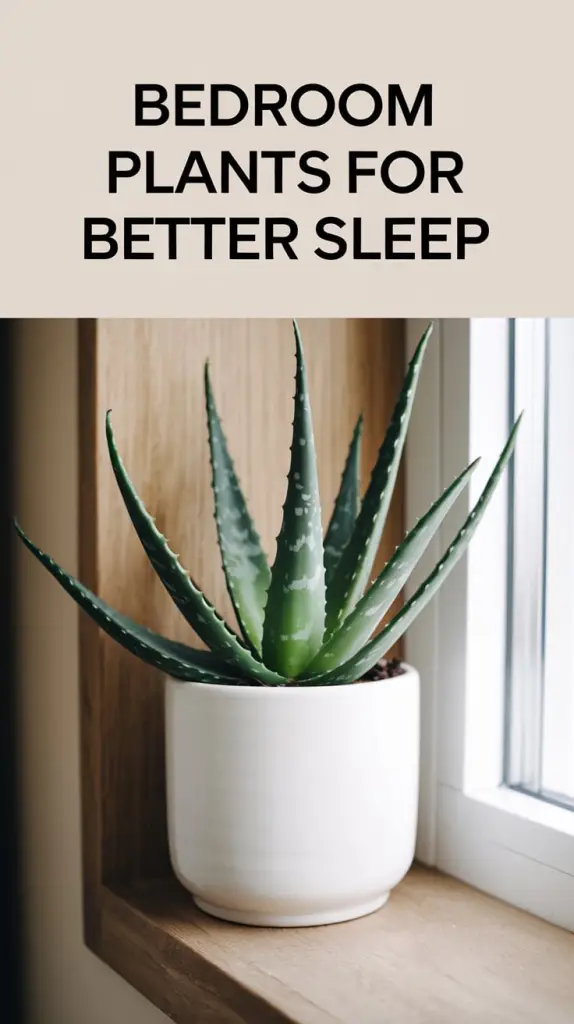
Aloe vera not only purifies the air but also emits oxygen at night, supporting improved sleep quality and respiratory health.
Sleep Benefits:
- Removes formaldehyde and benzene
- Nighttime oxygen release
- Soothes and cools indoor air environments
Care Tip: Requires bright, indirect light. Water every 2–3 weeks, depending on humidity levels.
9. Peace Lily (Spathiphyllum wallisii)
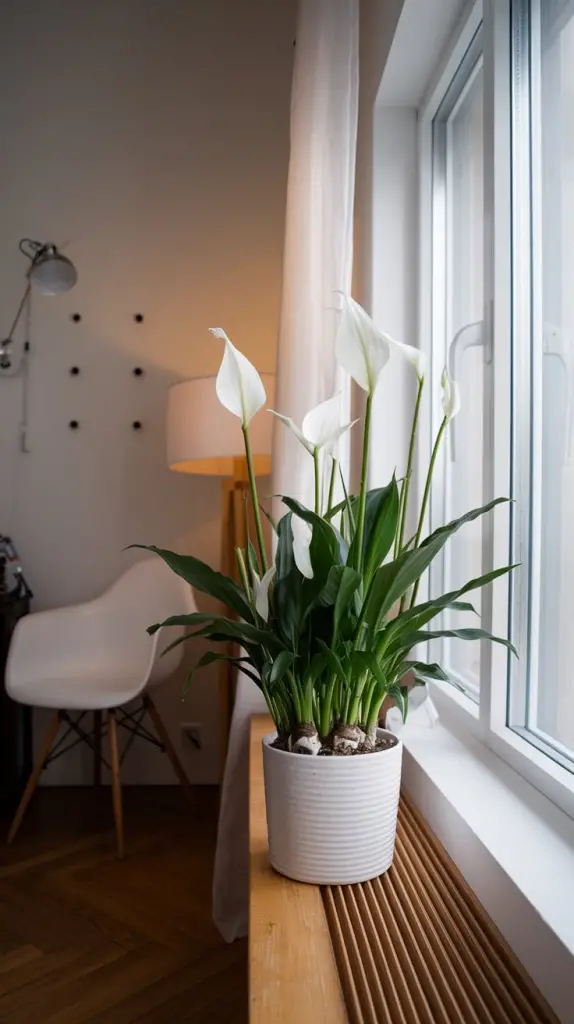
A powerful air purifier, the Peace Lily removes harmful chemicals while increasing room humidity, excellent for dry bedroom air.
Sleep Benefits:
- Improves humidity, which eases breathing
- Removes VOCs (volatile organic compounds)
- Absorbs airborne mold spores
Care Tip: Water weekly and mist leaves occasionally. Keep away from pets due to mild toxicity.
8. Jasmine (Jasminum officinale)
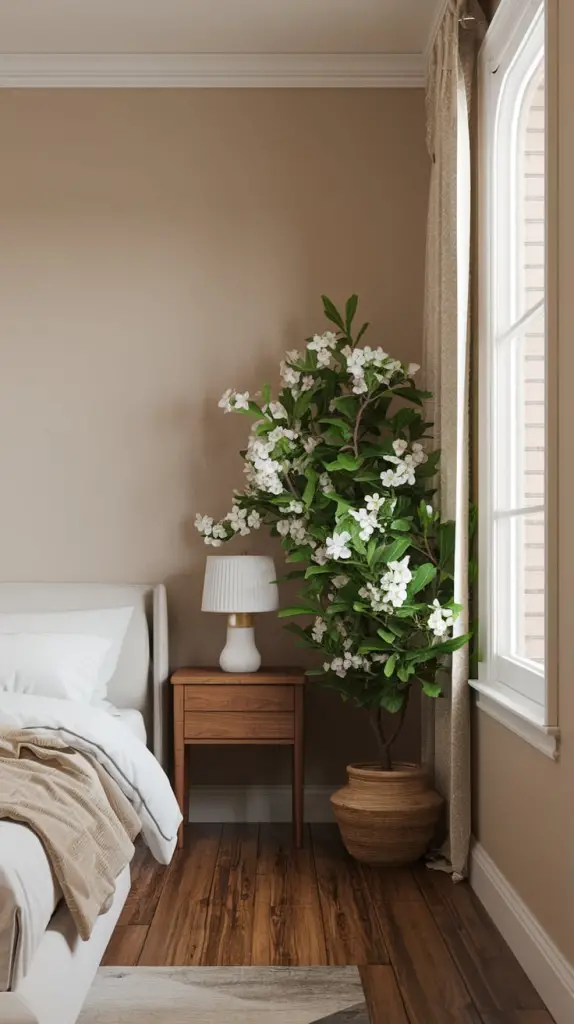
Jasmine flowers release a soft, sweet aroma known to reduce restlessness and increase sleep efficiency.
Sleep Benefits:
- Enhances sleep quality and morning alertness
- Calms the nervous system and reduces anxiety
- Promotes relaxation with a gentle scent
Care Tip: Needs bright, indirect sunlight and consistently moist (not soggy) soil.
7. Valerian (Valeriana officinalis)
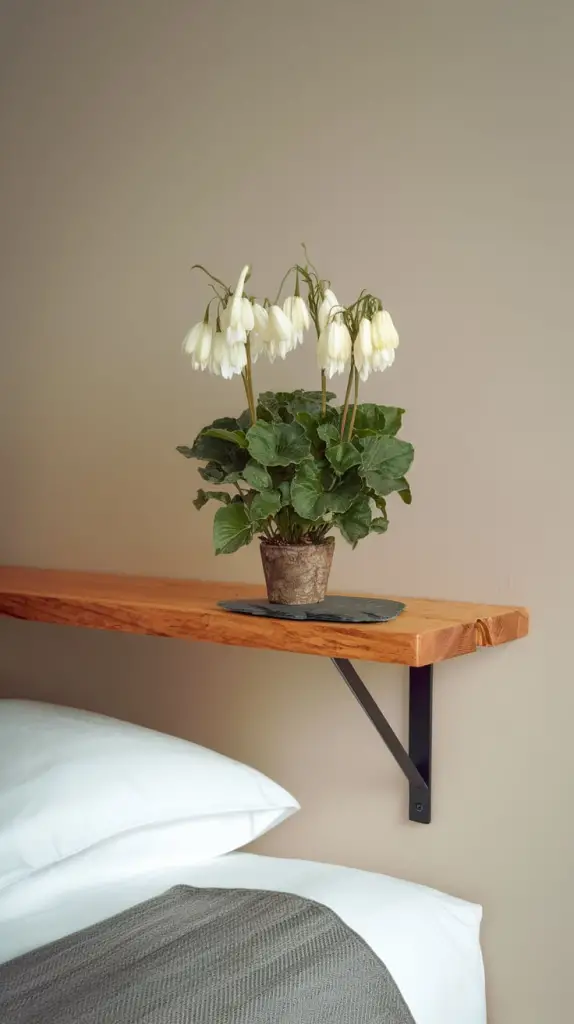
Valerian root has been used for centuries to treat insomnia. The plant itself also promotes restfulness through its fragrant blossoms.
Sleep Benefits:
- Emits mild natural sedatives via scent
- Promotes relaxation and sleep latency
- Reduces night-time awakenings
Care Tip: Needs 6+ hours of direct sunlight. Best kept near a bright window. Avoid overwatering.
6. Spider Plant (Chlorophytum comosum)
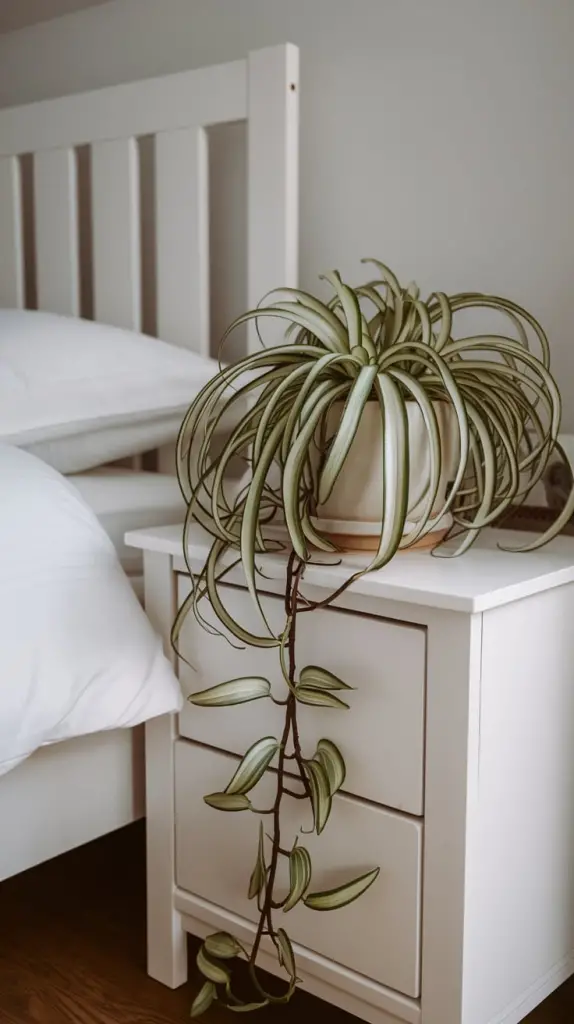
Spider plants are among NASA’s top-ranked air purifiers and are excellent at removing carbon monoxide and other pollutants.
Sleep Benefits:
- Removes airborne toxins like carbon monoxide and formaldehyde
- Increases humidity slightly for better nasal passage comfort
- Easy maintenance and pet-safe
Care Tip: Bedroom plants thrive in indirect light. Water when the top inch of soil is dry.
5. English Ivy (Hedera helix)
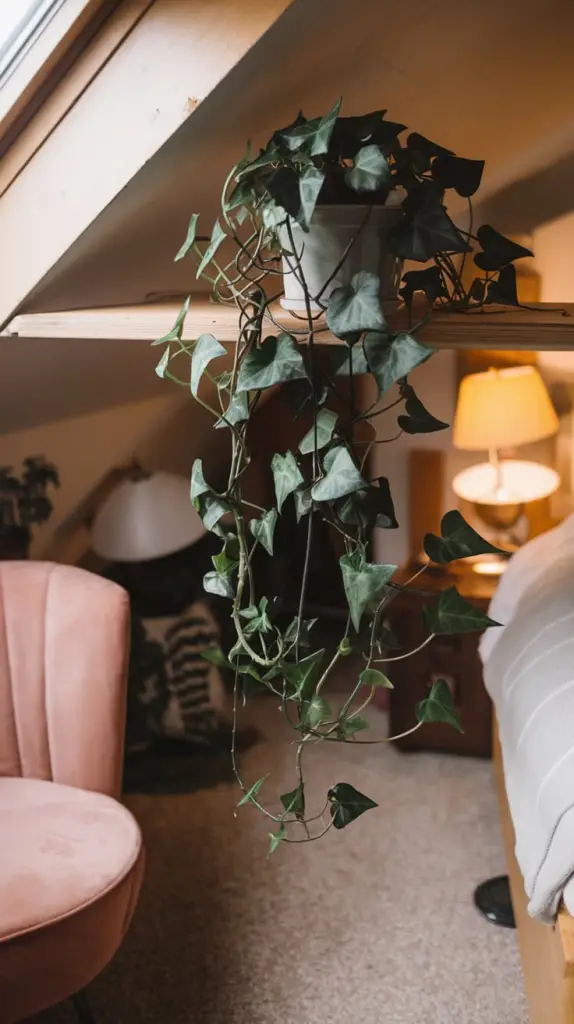
English ivy is highly efficient at reducing airborne mold, a common cause of respiratory irritation and poor sleep.
Sleep Benefits:
- Decreases mold spore levels in as little as 12 hours
- Alleviates allergy-related sleep disturbances
- Improves indoor air freshness
Care Tip: Bedroom plants need moderate sunlight and evenly moist soil. Can trail from a hanging basket for space efficiency.
4. Gardenia (Gardenia jasminoides)
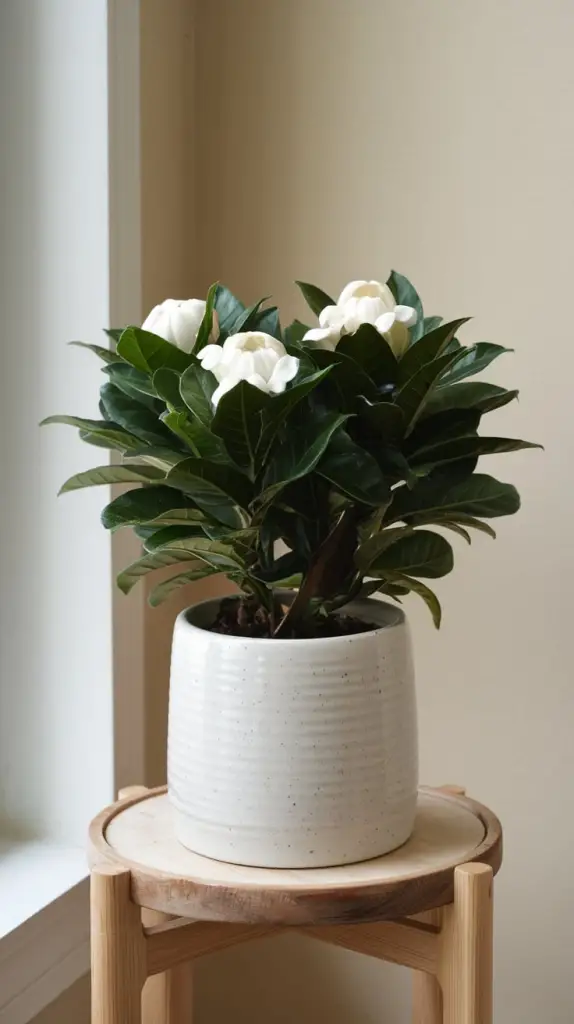
Gardenias have glossy leaves and creamy white flowers that release a soothing fragrance proven to improve sleep quality.
Sleep Benefits:
- Comparable to low-dose sleeping pills in aroma studies
- Reduces restlessness and promotes deep sleep
- Enhances overall mood
Care Tip: Prefers bright, filtered light and high humidity. For your bedroom plants, use a humidifier if your room is dry.
3. Golden Pothos (Epipremnum aureum)
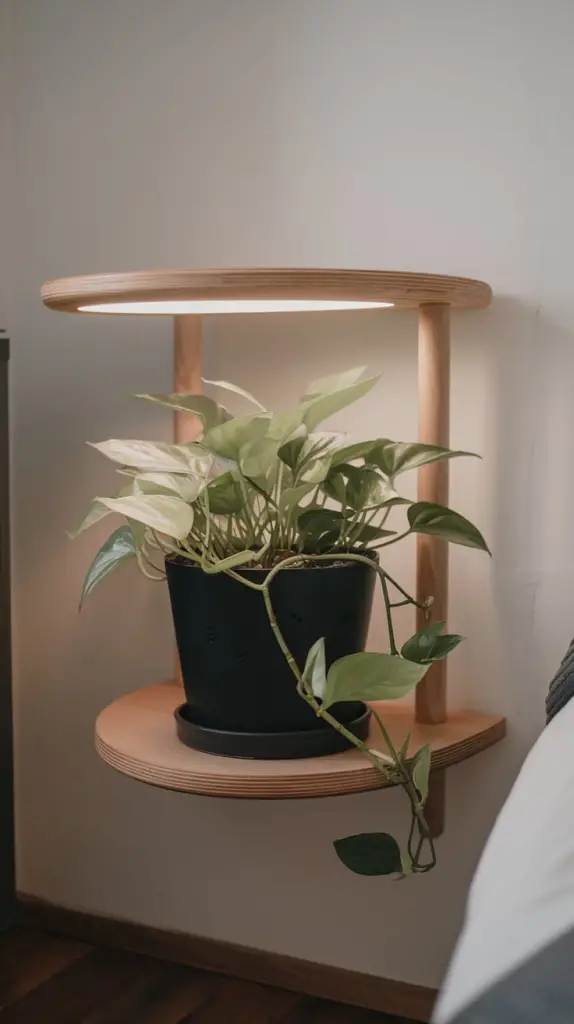
Golden pothos is a hardy, cascading plant that improves indoor air quality with minimal effort.
Sleep Benefits:
- Filters benzene, formaldehyde, and toluene
- Requires minimal maintenance, ideal for low-energy evenings
- Creates a peaceful, trailing green aesthetic
Care Tip: Grow bedroom plants in low to medium light. Let the soil dry between watering sessions.
2. Areca Palm (Dypsis lutescens)
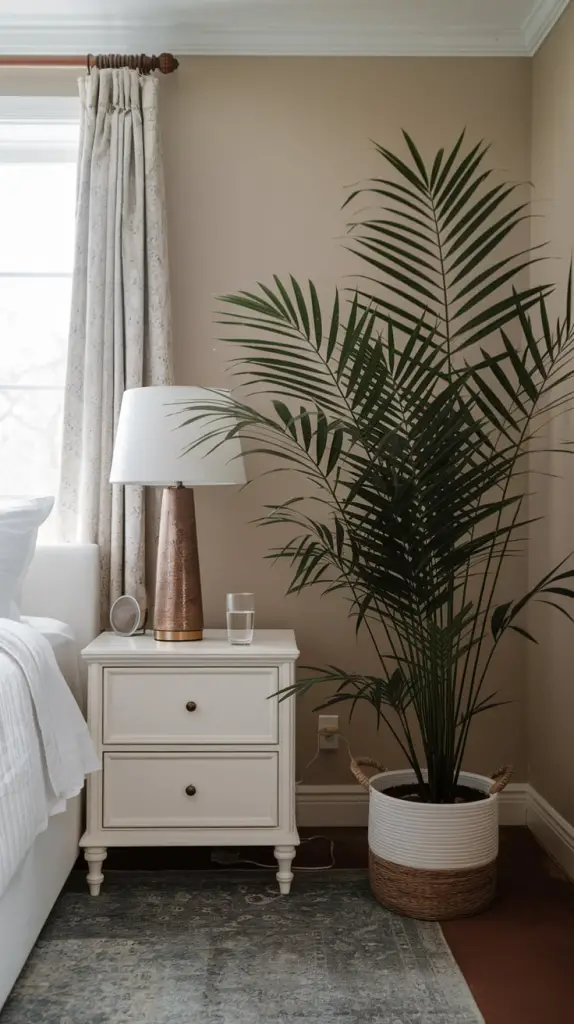
The Areca palm not only adds tropical flair but also acts as a natural humidifier, preventing dry air from disturbing your rest.
Sleep Benefits:
- Increases room humidity to prevent sinus dryness
- Removes airborne toxins
- Quiet, non-fragrant option for scent-sensitive sleepers
Care Tip: Keep bedroom plants in indirect sunlight and maintain slightly moist soil. Ideal for large bedrooms.
1. Chamomile (Matricaria chamomilla)
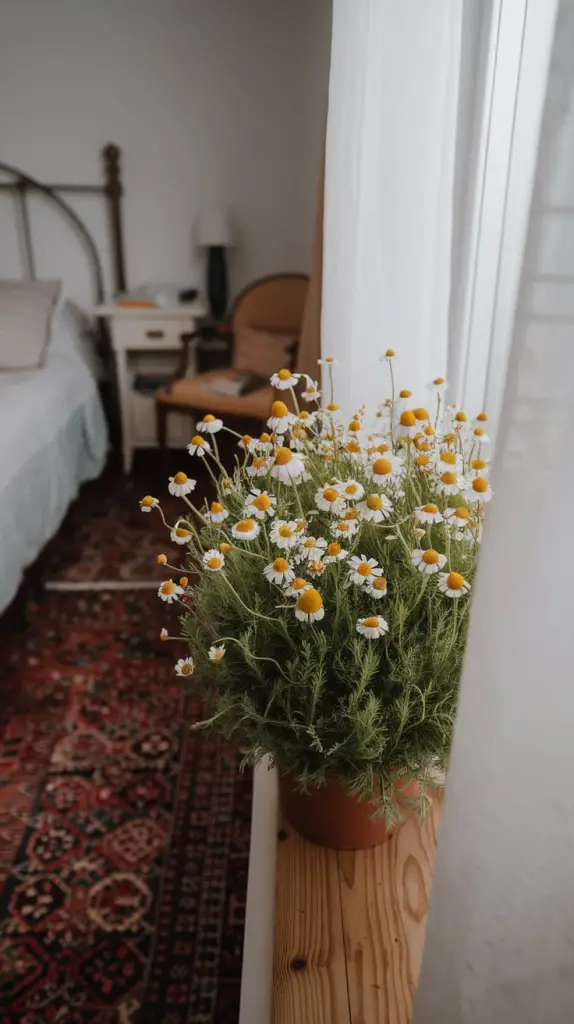
Known more as a tea herb, the plant itself also emits soothing compounds that relax the body and mind before bed.
Sleep Benefits:
- Emits calming terpenoids and flavonoids
- Reduces mild anxiety and tension
- Natural, gentle sleep aid
Care Tip: Bedroom plants require full sun and well-draining soil. Trim flowers regularly to promote blooming.
Conclusion
A thoughtfully selected arrangement of bedroom plants does more than beautify, it transforms the space into a sanctuary of health and rest. From purifying toxins to releasing sleep-enhancing fragrances, these 12 botanical allies support deep, natural sleep.






[…] had a goal in mind: add some greenery to my bedroom and bathroom. But not just any greenery; I needed low maintenance plants that could survive the […]